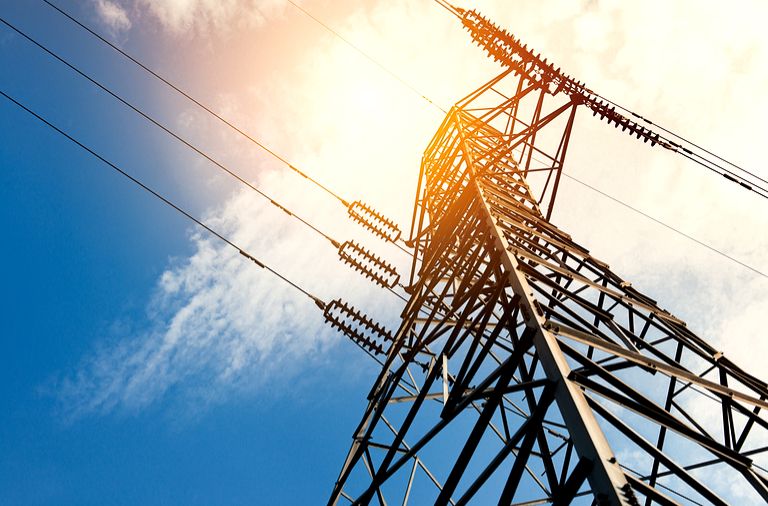Given the ethnic turmoil in Iraq triggered by ISIL’s recent seizure of towns in Iraq’s North and West it is uncertain how this will impact on oil production in the Shia controlled South, from where the bulk of Iraq’s oil exports come from. At present oil exports from Basrah’s new oil terminals do not seem to be affected by the unrest but this can change. We don’t know what is going to happen, especially if this conflict widens the proxy war between Saudi Arabia and Iran which was hitherto limited to Syria (where oil production had peaked). It would be prudent for governments which are still planning new oil dependent infrastructure like motorways and airports to shelve these plans and prepare for oil shortages instead.
Almost a year ago I wrote this article:
This post is an update.
12/6/2014 Mosul residents flee from ISIL and try to cross the Tigris river towards the East
A map of the Energy Policy Information Centre (Washington) describes the oil strategic situation:
Iraq Could “Send Economic Forecasters Back to the Drawing Board”
13/6/2014
Fig 1: Map showing recent ISIL advances and oil infrastructure
Energy planning back to square 1
It is important to understand that the International Energy Agency assumes in all its projections that OPEC will always fill the gap between Non-OPEC production and projected oil demand growth as a result of GDP growth (call on OPEC). And Iraq plays a central role in this concept as shown in this graph using data from IEA’s new policies scenario in its last World Energy Outlook (November 2013):
Fig 2: Iraq’s assumed contribution to ME OPEC oil production
In particular, for the period up to 2020, Iraq is supposed to contribute 5.8 mb/d to global oil production. Note that in the new policies scenario oil demand (and – by IEA definition -supplies) in that period is assumed to grow at a very modest 1.1% pa.(compared to 1.4% in the current scenario). The IEA has also worked into their calculations that US shale oil production will grow to 4.3 mb/d by 2025 (p 476)
A year earlier the IEA’s WEO 2012 (Chapter 13 “Iraq today: energy and the economy”) had this idea of Iraq’s future oil production and consumption:
Fig 3: IEA’s WEO 2012 central scenario for Iraq
The central scenario is the new policies scenario. The assumption was 6.1 mb/d by 2020, not much different from WEO 2013.
Iraq’s crude oil production
Fig 4: Iraq’s crude oil and NGL production to Dec 2013
When writing this post, latest monthly EIA data go only up to December 2013. We can see that production in 2012 started to exceed the previous maximum achieved in 2000. NGLs (natural gas liquids) are negligible. More recent data suggest average production in the first 4-5 months of 2014 was 3.1 mb/d (table 5.5 “direct communication” in OPEC’s monthly oil market report) and 3.3 mb/d (table 3 in IEA’s monthly oil market report).
Oil exports from North
Oil exports from the North have already stopped due to continuous attacks on pipelines to Turkey earlier in the year.
Fig 5: Iraq’s crude oil exports from Northern and Southern oil fields
Operation of refineries in the North
(1) The Baiji refinery complex (310 kb/d)
- Salahuddin1 refinery 70 kb/d
- North refinery 150 kb/d + 20 kb/d
- Salahuddin 2 refinery 70 kb/d
- Polymerisation unit 20 kb/d (since July 2011)
- 2 lube plant trains 125 kt pa
(2) Kirkuk refinery 30 kb/d
(3) Siynia refinery 30 kb/d
(4) Kisik refinery 20 kb/d
(5) Qaiyarah refinery 34 kb/d
(6) Hadithah refinery 16 kb/d
(7) Aljazirah refinery 20 kb/d
The Baiji refinery complex was attacked by ISIL but reportedly seems to be back under Government control. Kurdish Peshmerga soldiers have occupied deserted Iraqi army post in Kirkuk with its refinery. The situation may change quickly. Baiji was already attacked in February 2011. The refineries need to be kept going otherwise all parties will run out of petrol and diesel to move around.
The Institute for the Study of War (Washington) follows all events closely
Note that the Kirkuk field is past its oil peak:
21/1/2013
“The problems with the Kurds further increased last week when Baghdad announced a new plan to have BP double the output of the Kirkuk oil fields which are in the disputed zone. Production from the Kirkuk field, which was discovered in 1927, has fallen to 260,000 b/d from a high of 900,000 b/d 15 years ago and is badly in need of rehabilitation.”
http://peak-oil.org/2013/01/peak-oil-review-january-21-2013/
Management of oil investments by Baghdad
According to the IEA’s WEO 2012 (Chapter 13 “Iraq today: energy and the economy”) Iraq’s oil and gas industry requires US$ bn 20 pa between 2015 and 2020 in order to increase Iraq’s oil production to 6.1 mb/d by 2020 and build refineries to meet local demand. Will the government in Baghdad be able to manage such an investment program if it is busy fighting ISIL while under pressure from Sunni unrest? Who will invest in Iraq under such circumstances?
In the recent
World Energy Investment Outlook of the IEA total investments required in the Middle East to develop and produce oil up to 2035 is US$ 2 trillion (table 1.3). Using numbers from the above graph, almost 20% of this investment would have to take place in Iraq.
Involvement of Iran
Fig 7: Iraq under produced oil
We need to compare Iraq’s oil production history with that from Iran. Iran’s oil production peaked in the mid 70s (over-production under the Shah) which triggered the 2nd oil crisis in 1979. Iran is now at its 2nd and last oil peak, sharpened by sanctions. Total cumulative production between 1965 and 2012 was 63 Gb. In contrast, Iraq’s oil production in the same period was much lower, 32 Gb. It dropped during the Iran/Iraq war in the 80s and then during the oil-for-food program in the 1990s.
Both countries claim to have approximately the same volume of reserves. Irish oil geologist Colin Campbell has warned that these official reserves are actually original and not remaining reserves. This means that cumulative production has to be deducted from official reserves. It should therefore be clear that Iraq’s oil depletion is much lower than Iran’s. Iraq’s under-production of oil is the reason for high expectations in Iraq’s future oil production.
Oil exports from South
For now, it does not seem that ISIL’ advances into Northern Iraq have impacted on oil production and exports in the South. But that may change.
Fig 8: Oil fields and export terminals in Iraq’s South
To use Dick Cheney’s words from his 1999 “oil-is-not-leisurewear” speech: That’s where the prize ultimately lies.
Early warnings ignored
In August 2007 on ABC TV’s Lateline program:
UK journalist discusses interview with bin Laden
TONY JONES: … you write about a strategy designed, in fact, by Al Qaeda’s military strategist, the same man who helped design what was going on in Iraq with the insurgency there and the infiltration of Al Qaeda people into Iraq, has set out a plan which you’ve published right up to 2020. Where are we now in that plan? Where does that plan propose to end up?
Apparently there are new actors in this plan. The mess is best described by Robin Fisk, a multiple award-winning journalist on the Middle East, based in Beirut:
4 years later, in a Catalyst oil crunch doco, IEA chief economist Fathi Birol warned we should get away from oil before oil gets away from us:
This year’s Iraq outlook from the IEA (May 2014)
Iraqi production rose by 140 kb/d to 3.34 mb/d in April following the start of new production in the southern region of the country and despite the continued suspension of pipeline flows from the northern fields to the Mediterranean port at Ceyhan, Turkey. Crude exports rose by 110 kb/d to 2.51 mb/d, with shipments of Basrah crude from the Gulf export terminals accounting for total exports last month. This marked a record high for southern exports, which rose by about 140 kb/d on the month.
Production from the giant West Qurna‐2 field in southern Iraq started at end‐March, with initial output building to 120 kb/d. However, Iraq’s southern exports may remain capped at 2.5 to 2.6 mb/d for the remainder of the year due to technical constraints.
http://omrpublic.iea.org/omrarchive/15may2014fullpub.pdf
Conclusion:
In year 10 of peaking oil production, unrest in the Middle East is spreading. Even before the global (annual) oil peak can be seen in the rear view mirror of oil statistics, fighting over remaining oil reserves and oil flows is intensifying. Is it now finally dawning on governments to get away from oil before the Middle East oil gets away from us?














